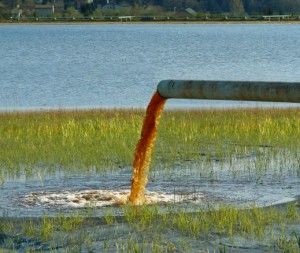Animals Threatened by Tar Sands Corporate Practice

Canadian owned Enbridge Inc., operators of one of the longest pipeline systems in the world, categorically refused to fund Tar Sands environmental impact studies, and stopped the cleaning efforts in the Kalamazoo River Watershed. This was one of the largest inland oil spills in America, and its citizens are left with the bill for Enbridge's irresponsible corporate practices. The cost for repair goes well beyond getting the sticky Tar Sands out of the water, which is believed an unachievable task. Tar Sands is a thick bitumen that needs to be mixed with several chemicals to allow it to push through pipelines, known as dilbit, or diluted bitumen. When Enbridge's pipeline ruptured into the Michigan watershed, the chemical cocktail mixed with the water and the bitumen sank to the bottom of the riverbed. Therefore, rudimentary methods used to clean crude oil spills do not work, as saturation devices are designed to float on the surface of the water.
While America figures out how to afford the expense of environmental cleanup and research projects, it must first contend with bitumen exposure to soil, crops, water, people, and animals. The Environmental Protection Agency (EPA) has put an indefinite ban on Kalamazoo River water activities. People are no longer allowed to swim, wade, fish, boat, canoe, or kayak. People are banned from using water from the watershed to irrigate crops or lawns. Further, the water cannot be used as a drinking resource for animals. Health advisories have gone out urging people not to consume fish from the watershed, as the aquatic life is believed to be toxic.
The attitude in handling this disaster is but a glimpse of the continuing unaccountable demeanor towards the Tar Sands scheme. If there is indifference towards the Kalamazoo watershed, what is going to happen when the Enbridge's Northern Gateway Pipeline breaks in the heart of Canada's wildlife preservations, and TransCanada's Keystone XL scheme ruptures throughout the Heartland of America? Michigan's attitude towards the installation of Enbridge's pipeline was one of complacent optimism. Many believed it would create jobs, reduce oil costs, help a sluggish economy, and Canada would ensure the safety of Americans. Well, hang on a second. This sounds precisely like the complacent attitude America is having over the Keystone XL debacle. The disaster in the Kalamazoo watershed, the Keystone XL, and the Northern Gateway Pipeline, are all made from the same piping, so it is comparing apples to apples. Yet somehow, people continue to contemplate the Tar Sands pumping through wildlife preserves, watersheds, rivers, farmland, the Pacific Ocean, and the Gulf of Mexico as a smart, cost effective idea. For those convinced Michigan was an isolated incident. Here are some other areas that have endured Enbridge pipeline spills. There have been several recordable spills in rural farmlands surrounding Madison, Wisconsin; Elk Point, Alberta; Berthold, North Dakota, Mackenzie River by Wrigley, Northwest Territories; Romeoville, Illinois; Neche, North Dakota; Nemadji River in Wisconsin, and marshlands around Cohasset, Minnesota. Therefore, it is reasonable to say that such ruptures are not isolated incidents.
Canadian pipeline companies, like Enbridge and TransCanada, have made it clear that environmental impact on United States soil is America's problem, even if the land is owned by Canada. There is no intention to act responsibly and take accountability for damage to soil, crops, animals, waterways, wildlife, or people. This kind of toxic corporate attitude does not promote good will and is counterproductive to the evolution of forward thinking and global prosperity. For those interested, stand with Natural Resources Defense Council (NRDC) to put a stop to this destructive, finite, dirty fuel source, and end environmental corruption by holding irresponsible businesses accountable for their actions.
While America figures out how to afford the expense of environmental cleanup and research projects, it must first contend with bitumen exposure to soil, crops, water, people, and animals. The Environmental Protection Agency (EPA) has put an indefinite ban on Kalamazoo River water activities. People are no longer allowed to swim, wade, fish, boat, canoe, or kayak. People are banned from using water from the watershed to irrigate crops or lawns. Further, the water cannot be used as a drinking resource for animals. Health advisories have gone out urging people not to consume fish from the watershed, as the aquatic life is believed to be toxic.
The attitude in handling this disaster is but a glimpse of the continuing unaccountable demeanor towards the Tar Sands scheme. If there is indifference towards the Kalamazoo watershed, what is going to happen when the Enbridge's Northern Gateway Pipeline breaks in the heart of Canada's wildlife preservations, and TransCanada's Keystone XL scheme ruptures throughout the Heartland of America? Michigan's attitude towards the installation of Enbridge's pipeline was one of complacent optimism. Many believed it would create jobs, reduce oil costs, help a sluggish economy, and Canada would ensure the safety of Americans. Well, hang on a second. This sounds precisely like the complacent attitude America is having over the Keystone XL debacle. The disaster in the Kalamazoo watershed, the Keystone XL, and the Northern Gateway Pipeline, are all made from the same piping, so it is comparing apples to apples. Yet somehow, people continue to contemplate the Tar Sands pumping through wildlife preserves, watersheds, rivers, farmland, the Pacific Ocean, and the Gulf of Mexico as a smart, cost effective idea. For those convinced Michigan was an isolated incident. Here are some other areas that have endured Enbridge pipeline spills. There have been several recordable spills in rural farmlands surrounding Madison, Wisconsin; Elk Point, Alberta; Berthold, North Dakota, Mackenzie River by Wrigley, Northwest Territories; Romeoville, Illinois; Neche, North Dakota; Nemadji River in Wisconsin, and marshlands around Cohasset, Minnesota. Therefore, it is reasonable to say that such ruptures are not isolated incidents.
Canadian pipeline companies, like Enbridge and TransCanada, have made it clear that environmental impact on United States soil is America's problem, even if the land is owned by Canada. There is no intention to act responsibly and take accountability for damage to soil, crops, animals, waterways, wildlife, or people. This kind of toxic corporate attitude does not promote good will and is counterproductive to the evolution of forward thinking and global prosperity. For those interested, stand with Natural Resources Defense Council (NRDC) to put a stop to this destructive, finite, dirty fuel source, and end environmental corruption by holding irresponsible businesses accountable for their actions.
You Should Also Read:
Fossil Fuels Affect Core Aquatic Life
Tar Sands Extraction Mutates Animal Life
How Clean Is the Water?

Related Articles
Editor's Picks Articles
Top Ten Articles
Previous Features
Site Map
Follow @WildlifeWelfare
Tweet
Content copyright © 2023 by Deb Duxbury. All rights reserved.
This content was written by Deb Duxbury. If you wish to use this content in any manner, you need written permission. Contact Deb Duxbury for details.







